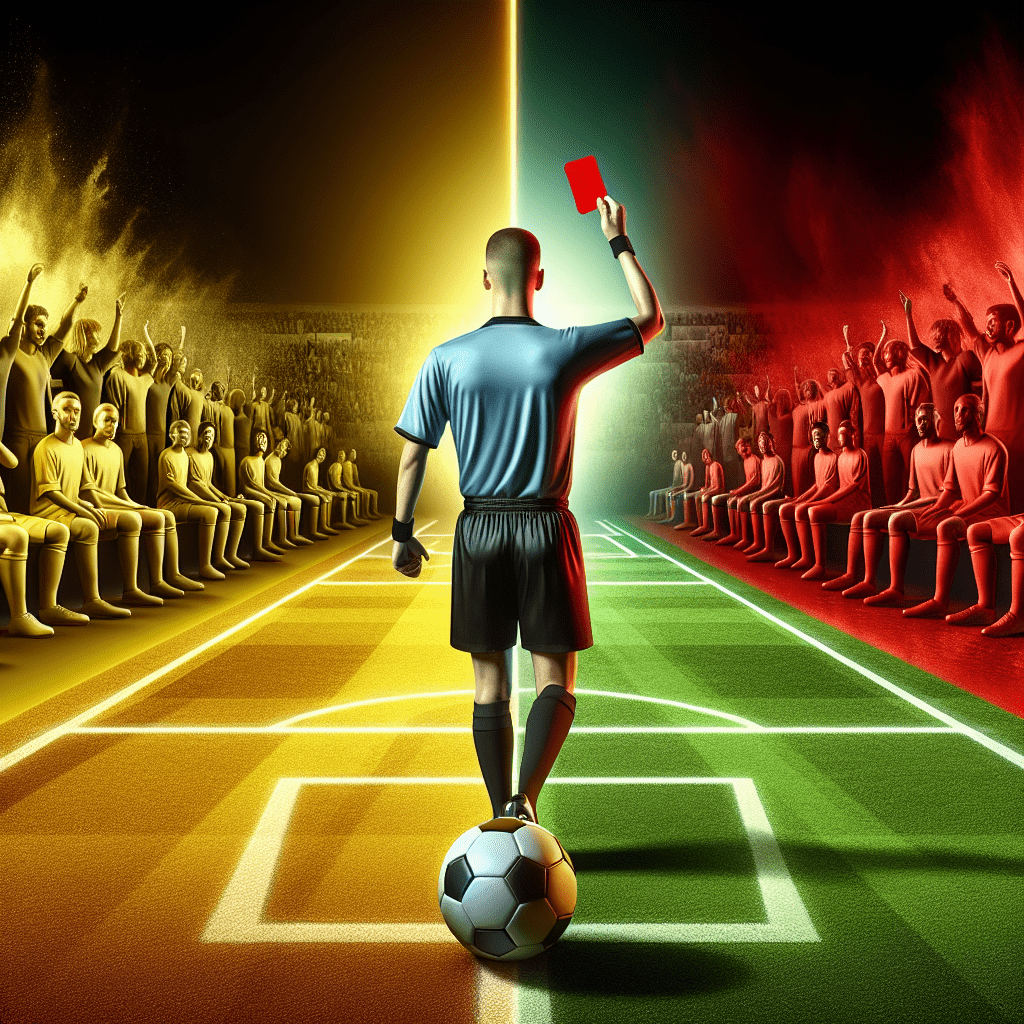[ad_1]
The world of football has been witness to countless moments of brilliance, despair, and controversy. Among these, controversial referee decisions stand out, having the power to alter not just the outcome of matches but the course of football history itself. This article delves into some of the most debated referee calls, from yellows that should have been reds to penalties that left fans and players alike in disbelief.
The Hand of God and Beyond
Perhaps no other moment in football history encapsulates controversy quite like Diego Maradona’s infamous ‘Hand of God’ goal against England in the 1986 World Cup quarter-final. The Argentine legend’s handball was missed by the referee, allowing the goal that ultimately contributed to England’s elimination. This decision not only altered the outcome of the match but also sparked discussions on the need for technological assistance in football.
The Disallowed Goal That Crossed the Line
In the 2010 World Cup, England found themselves on the opposite end of controversy when Frank Lampard’s shot against Germany crossed the goal line but was not awarded by the referee. This incident, occurring at a critical juncture in the match, arguably altered the flow of the game and potentially, the final result. It highlighted the fallibility of human judgement in a sport increasingly characterized by its speed and complexity.
Yellow to Red: The Challenges of Officiating
Referee decisions, particularly the issuing of yellow and red cards, remain among the most contentious areas. The distinction between a foul meriting a yellow card versus a red card offense is often blurred, leaving referees to make split-second decisions that can drastically influence match dynamics. Controversies surrounding such decisions are numerous, with debates often centering on whether the referee’s interpretation aligned with the rules of the game.
The 2006 FIFA World Cup final saw French legend Zinedine Zidane receive a red card for headbutting Italy’s Marco Materazzi. The decision, made with the assistance of off-pitch officials, showcased the complexities faced by referees in heated moments and the immense pressure under which they operate.
VAR: A Solution or Another Layer of Controversy?
The introduction of the Video Assistant Referee (VAR) system was intended to provide clarity and fairness in decision-making. Instead, it has often added another layer of controversy, with decisions sometimes taking several minutes to resolve and leading to debates about the ‘spirit of the game.’ The 2018 World Cup was particularly notable for its frequent recourse to VAR, which, while correcting some errors, also introduced new controversies, particularly regarding handball and offside decisions.
Key Takeaways
Understanding the Impact of Referee Decisions
- Referee decisions can significantly alter the outcome of matches and have long-term implications for teams and tournaments.
- The introduction of technology in refereeing, while aimed at reducing human error, has not eliminated controversy.
- The complexity of the game and the speed at which it is played make the role of a referee exceedingly challenging.
- Controversial decisions provide critical talking points that fuel discussions among fans, players, and officials alike.
Frequently Asked Questions (FAQs)
Why is the distinction between a yellow and red card important?
A yellow card serves as a warning, while a red card results in a player’s immediate ejection from the game. The severity of the punishment can greatly influence team dynamics and the overall outcome of the match.
How has VAR changed the nature of football controversies?
VAR was introduced to make football decisions more accurate. However, its application has often prolonged decision-making and created new kinds of controversies, particularly over interpretations of the laws rather than their enforcement.
Can technology ever completely eliminate controversial decisions in football?
While technology can reduce the number of errors in game officiating, the subjective nature of many football rules means that controversy is likely to remain a part of the game.
[ad_2]






